
CURRENT BOARD
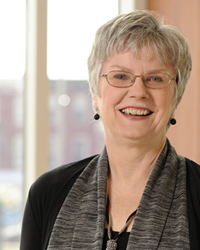
President
Deborah S. Finnell, PhD, CARN-AP, FAAN
Professor Emerita Johns Hopkins School of Nursing
Dr. Finnell is a Fellow in the American Academy of Nursing and is board certified at the advanced practice level in addictions nursing. Throughout her career, she held teaching and leadership roles in academia as well as clinical and administrative roles in private, public, and federal healthcare systems focusing on psychiatric mental health and substance use-related care. For several decades, Dr. Finnell has translated the neurobiological science related to mental and substance use disorders in her clinical practice, teaching, research, and policy/advocacy work. Dr. Finnell has been the recipient of several federal grants supporting the advancement of nurses’ substance use-related knowledge and competence. Dr. Finnell led the development of substance use-related competencies for nurses, including graduate-level and advanced-practice nurses, Dr. Finnell has over 100 peer-reviewed publications and book chapters, 30 of which relate specifically to alcohol and or other drugs (https://orcid.org/0000-0001-7678-9640).
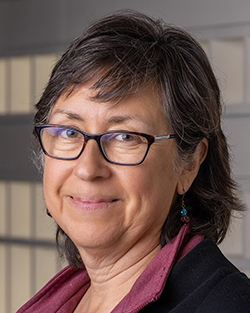
Vice President
Miriam Komaromy, MD
Boston University
Miriam Komaromy is an addiction medicine physician and internist who is a Professor of Medicine at Boston University, and medical director of the Grayken Center for Addiction at Boston Medical Center. Her work focuses on all aspects of substance use disorders and the intersection between addiction and health equity. Her medical training was at UCSF, and she was a RWJ Clinical scholar in the UCSF/Stanford program. In the past, she led the development of the ECHO model for education of clinical teams about how to treat substance use disorders in primary care. Two of her favorite projects in Boston are exploring ways to make SUD treatment more appealing and effective for Black patients; and leading the implementation of low-barrier housing + addiction stabilization treatment for people who are exiting from street encampments. Dr. Komaromy is married to Julie Rosen, who is a clinical social worker and trauma therapist. They have four adult sons.

Secretary
Shannon Smith-Bernardin PhD, RN, CNL
Associate Professor, UCSF School of Nursing
President & Co-Founder, National Sobering Collaborative
Nurse Consultant, Smith-Bernardin Consulting, Inc.
Dr. Smith-Bernardin has specialized in health care for individuals experiencing homelessness since 2007, with expertise in street health outreach teams and medical respite/recuperative care for medically frail adults. Her primary focus is on the utilization of sobering centers in lieu of the emergency department and jail for adults intoxicated in public. Building from her clinical and administrative nursing experience and her doctoral work at UCSF School of Nursing, Dr. Smith-Bernardin’s work currently encompasses three roles emphasizing health services research, program development, and policy efforts. First, she is assistant professor at UCSF School of Nursing specializing in alcohol use disorders, sobering center utilization, and homeless-related research. She is funded through a five-year NIAAA grant investigating emergency medical and sobering care collaborations in the care of acute alcohol intoxication. Second, Shannon is co-founder and the first board president of the National Sobering Collaborative, a 501(c)3 nonprofit aimed at identifying and developing best practices, standards, and education towards the use of sobering centers for the care of individuals with harmful substance use. Lastly, she consults in the development of related programs for communities throughout the United States and internationally.
Dr. Smith-Bernardin holds a doctorate from University of California-San Francisco School of Nursing, a Master’s from Western University of Health Sciences, and a Bachelor’s degree from Dartmouth College. She recently completed a Health Care Leadership fellowship (Cohort 18, September 2020) with the California Health Care Foundation.
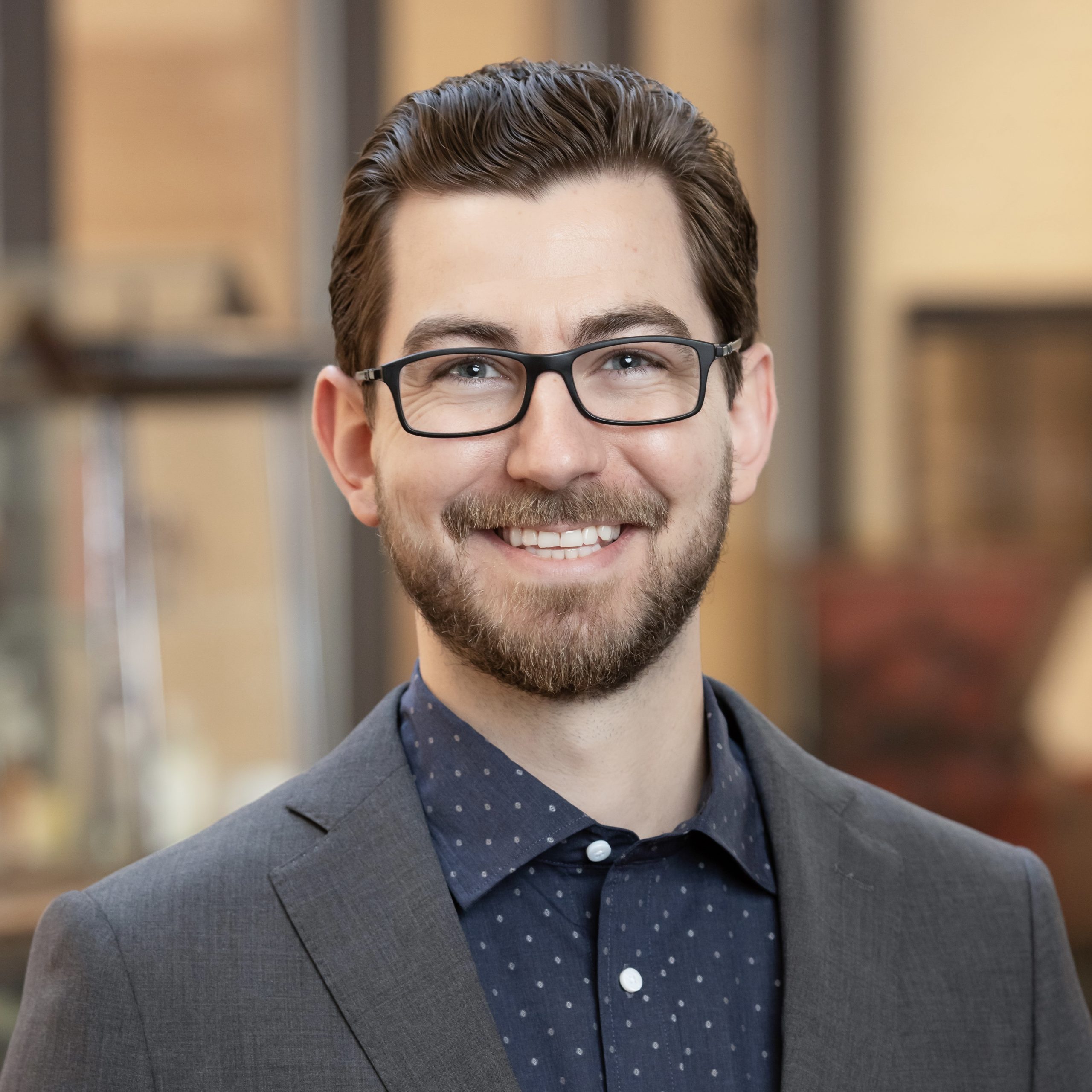
Treasurer
Lucas G. Hill, PharmD, FCCP
University of Pittsburgh School of Pharmacy
Dr. Hill is devoted to addressing substance use challenges through community engaged research and innovative educational programs. He serves as Executive Director of the Program Evaluation and Research Unit (PERU), a team of more than 40 research staff with expertise in implementation science, data analysis, and professional education. Dr. Hill graduated from the University of Missouri–Kansas City School of Pharmacy, completed a family medicine pharmacy residency at UPMC St. Margaret, and completed a faculty development fellowship at the University of Pittsburgh School of Medicine. He founded the PhARM Program at The University of Texas at Austin and led several Texas Targeted Opioid Response projects focused on health professional education and community overdose prevention. Dr. Hill’s current research focuses on identifying, exploring, and addressing gaps in pharmacy implementation of evidence-based substance use disorder treatment and harm reduction strategies. He serves on the board of directors of the Association for Multidisciplinary Education and Research in Substance Use and Addiction (AMERSA) and on the editorial board of the Journal of the American College of Clinical Pharmacy (JACCP). Dr. Hill has been recognized with several prestigious national honors, including the American College of Clinical Pharmacy New Educator Award and the American Pharmacists Association Generation Rx Award of Excellence.

Member-At-Large
Governance Chair
Chin Hwa (Gina) Dahlem, PhD, FNP-C, FAANP
University of Michigan School of Nursing
Dr. Gina Dahlem is a Clinical Associate Professor at the University of Michigan School of Nursing and co-faculty lead for the Community Engagement Domain at the Opioid Research Institute. With 20 years of experience as a primary care nurse practitioner, she has dedicated her clinical career to serving at-risk adolescents, incarcerated individuals, and people experiencing homelessness. Since 2013, she has been delivering overdose prevention education, focusing on the development and implementation of innovative care models through community-engaged research to reduce the impact of the opioid epidemic. She serves as the Principal Investigator for the SAMHSA PCSSU grant and BJA’s COSSUP and COSSAP site-based grants, which evaluate community-based overdose prevention initiatives. Furthermore, Dr. Dahlem is the co-inventor of the Rapid Assessment for Adolescent Preventive Services (RAAPS), a screening tool now utilized globally. Her work in overdose prevention has led to the implementation of naloxone distribution programs in 43 emergency departments across Michigan and train-the-trainer naloxone programs for community members and first responders. These initiatives have successfully distributed nearly 66,000 kits and reported 400 reversals from 2020 to 2024.
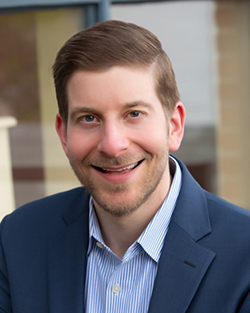
Member-At-Large
Development Chair
Richard Bottner, PA-C
Colorado Hospital Association
Richard Bottner, DHA, PA-C, CPHQ, FACHE is the Director of Quality Improvement and Patient Safety at the Colorado Hospital Association (CHA) and exceptionally passionate about effective, efficient, and interprofessional acute care in hospitals nationwide. Prior to his role with CHA, Dr. Bottner was Director of Support Hospital Opioid Use Disorder Treatment (SHOUT) Texas, a Substance Abuse and Mental Health Services Administration-funded program to increase access to substance use disorder treatment as part of acute hospitalization across Texas. Dr. Bottner has led system-wide quality improvement programs around readmission prevention, medication safety, and patient experience. Dr. Bottner was the first physician assistant (PA) in the country to be certified to teach the buprenorphine x-waiver curriculum through the American Academy of Addiction Psychiatry and has a strong interest in and passion for reducing the stigma associated with substance use disorders and mental health conditions. Dr. Bottner has a Doctor of Health Administration from the Medical University of South Carolina with a focus on interprofessional care delivery, Master of Physician Assistant Studies from Quinnipiac University, and Bachelor of Science in Entrepreneurship and Business Administration from Babson College. Dr. Bottner is a Fellow of the American College of Healthcare Executives. He also holds a Certificate of Additional Qualifications in Hospital Medicine from the National Commission on the Certification of PAs and also holds a Certified Professional in Healthcare Quality credential from the National Association for Healthcare Quality.
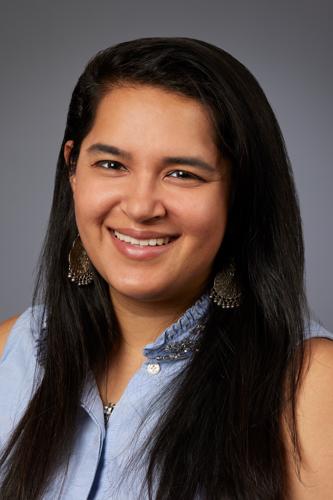
Member-at-Large
Raagini Jawa, MD, MPH, FASAM
Dr. Raagini Jawa (she/her) is an Assistant Professor of Medicine, Public Health, and clinician investigator at the Center for Research on Healthcare at the University of Pittsburgh School of Medicine. She received her MD-MPH at Boston University and is board-certified in internal medicine, infectious diseases, and addiction medicine. Her clinical work spans providing endovascular infection, wound and addiction care and directly informs her research which focuses on mitigating health disparities and preventable infectious and non-infectious drug-related harms for persons who use substances. She leads the Harm Reduction Research Collaborative where her current research is evaluating harm reduction service implementation in outpatient health settings supported by National Institute of Drug Abuse (K12 DA050607). For fun she enjoys gardening and singing covers under the pseudonym Bollywoodukulele.
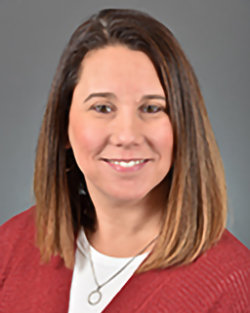
Member-At-Large
HR Chair
Shannon Mountain-Ray, MSW, LICSW
Boston Children’s Hospital
Shannon Mountain-Ray, MSW, LICSW is a clinically trained social worker and the Director of Integrated Care for the Adolescent Substance Use and Addiction Program’s Primary Care Program (ASAP-PC) at Boston Children’s Hospital. Shannon has worked with adolescents, young adults and their caregivers in direct care, supervisory and administrative roles over the past 20 years. Her current work is focused on expanding substance use care through innovative program development that eliminates barriers, reduces stigma and increases access. She has extensive experience teaching and training as well as providing consultation to legislators, organizations, schools, etc. around clinical, educational and policy issues related to adolescent substance use. Shannon is an adjunct faculty member of Simmons University Graduate School of Social Work.

Member-At-Large
Mentorship Co-Chair
Tae Woo (Ted) Park, MD
University of Pittsburgh School of Medicine, Dept of Psychiatry
Tae Woo (Ted) Park, MD is a board-certified Addiction Psychiatrist and researcher affiliated with the University of Pittsburgh and the University of Pittsburgh Medical Center. Dr. Park received his MD from Case Western Reserve University School of Medicine and completed his General Adult Psychiatry Residency and Addiction Psychiatry Fellowship at UPMC Western Psychiatric Hospital. Dr. Park was a Research Fellow at the VA Boston Healthcare System, then held academic and clinical appointments first at Brown University and Rhode Island Hospital, and then Boston University and Boston Medical Center before returning to Pittsburgh. Dr. Park’s research focuses on risks and benefits of benzodiazepine use in people who use opioids and the management of patients with co-occurring substance use and mental disorders in specialty and general medical settings.

Member-At-Large
Advocacy Co-Chair
Leslie W. Suen, MD, MAS
Zuckerberg San Francisco General Hospital and Trauma Center
Dr. Leslie W. Suen, MD, MAS (she/her) is an Assistant Professor of Medicine in the Division of General Internal Medicine at San Francisco General Hospital, where she works as a primary care and addiction medicine physician and health services/policy researcher. She completed medical school, Primary Care Internal Medicine (UCPC) residency training, and the National Clinician Scholars Program research fellowship at UCSF. Before medical school, she worked at the San Francisco Department of Public Health and Tom Waddell Urban Health Center, where she helped develop quality improvement programs to improve care for patients experiencing homelessness. Her research focuses on using mixed methods research and implementation science to improve health systems, policies, and outcomes for people who use drugs.
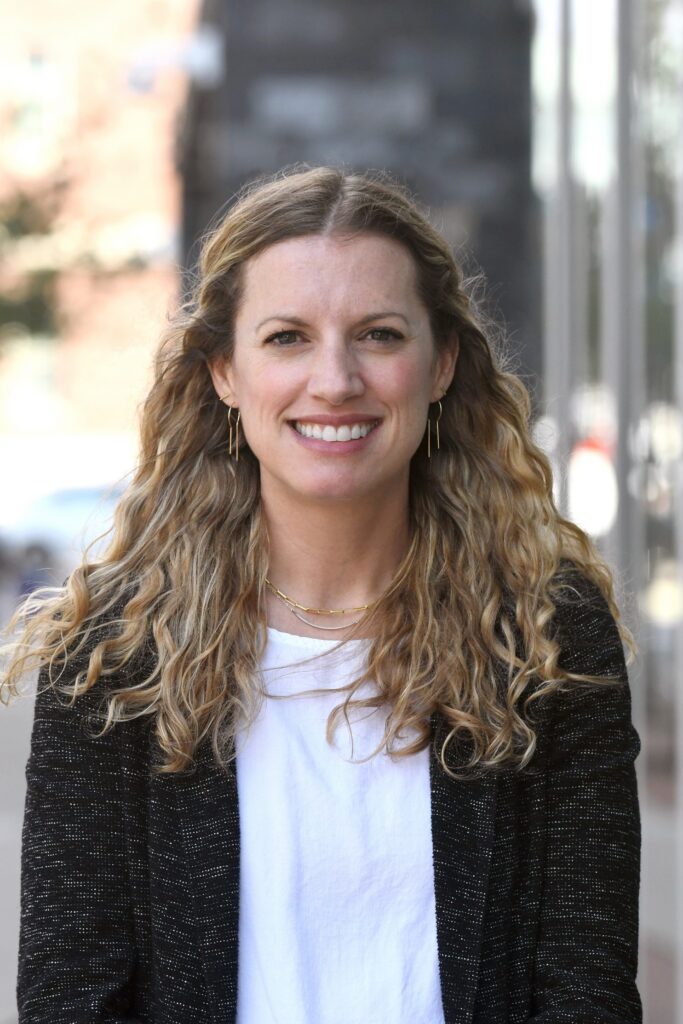
Member-At-Large
Mentorship Co-Chair
Kristin Wason, MSN, AGPCNP-BC, CARN
Boston Medical Center
Kristin is an Assistant Professor of Medicine at Boston University School of Medicine, a Nurse Practitioner at Boston Medical Center, and a Clinical Educator for Boston Medical Center’s Grayken Center for Addiction Training and Technical Assistance team. Kristin has spent years providing education and support to health care providers, and a variety of stakeholders, on best practices in the care of persons with substance use disorder(s) nationally and internationally. Kristin serves as the Director for the Grayken Addiction Nurse Fellowship program, the first addiction nurse fellowship in the United States. Kristin, has published in several peer reviewed journals and is first author of Addiction Nursing Competencies: A Comprehensive Toolkit for the Addictions Nurse. She has also co-authored and authored numerous guidelines to treat patients with substance use disorders in the outpatient setting.

Editor-in-Chief, Substance Use & Addiction Journal
Adam Gordon, MD, MPH
University of Utah/VAMC
Adam J. Gordon, MD MPH FACP DFASAM is the Elbert F. and Marie Christensen Endowed Research Professor, Professor of Medicine and Psychiatry, at the University of Utah School of Medicine and the Section Chief of Addiction Medicine at the Salt Lake City VA Health Care System. He is a board-certified internal medicine and addiction medicine physician and a Core Faculty member of the VA Salt Lake City Informatics, Decision-Enhancement and Analytic Sciences (IDEAS) Center, a Department of Veterans Affairs Health Services Research and Development HSRD Centers of Innovation (COIN). He is also the Director of the Program for Addiction Clinical Care, Knowledge, and Advocacy (PARCKA), co-Director of the Coordinating Center of the VA’s Interdisciplinary Advanced Fellowship in Addiction Treatment, and the PI/Director of the Greater Intermountain Node (GIN) of NIDA’s Clinical Trials Network. In a 25+ year track record of leading research on the quality, equity, and efficiency of health care for vulnerable populations, he has led national VA Initiatives and research programs to improve the care of patients with addiction; received efforts on grants from VA HSR&D/QUERI, the NIH, AHRQ, PCORI, SAMHSA, and Foundations; authored over 360 peer reviewed scientific manuscripts; and is the Editor-in-Chief of the journal Substance Use & Addiction Journal. He is passionate about interdisciplinary, multidisciplinary, and transdisciplinary clinical care and scholarship. He lives in Salt Lake City with his wife and three children.
AMERSA board members can be reached by sending an email to contact@amersa.org
COMMITTEES & TASK FORCES
Executive Committee
The Executive Committee may act in place and stead of the Board when time does not permit the convening of the full Board on all matters, except those specifically reserved to the Board by the bylaws. The Executive Committee consists of the President, Vice President, Treasurer, Secretary and Governance Committee Chair. The Executive Director may also serve as a non-voting member of the Executive Committee. The Executive Committee is responsible for oversight of Human Resources matters of the organization. This committee is responsible, with guidance from the Treasurer, for recommendations regarding fiscal policy to the Board, including but not limited to proposals and recommendations regarding investment and management of the ASSOCIATION’s reserves.
Executive Committee Members
Chin Hwa (Gina) Dahlem, PhD, FNP-C, FAANP
Deborah S. Finnell, DNS, RN, CARN-AP, FAAN
Miriam Komaromy, MD
Holly Hagle, PhD
Shannon Smith-Bernardin, PhD, RN, CRL
Click here to download the 2023-2024 Annual Committee Summary Report
Governance Committee
This committee assists the Board in fulfilling its oversight responsibilities with a focus on board governance practices and effectiveness, board director nomination, recruitment, appointment and ongoing development, and defining membership, and working with the board and other committees on recruitment and engagement, with attention to equity, diversity and inclusion.
Governance Committee Members
Chair: Chin Hwa (Gina) Dahlem, PhD, FNP-C, FAANP
Zoe Weinstein, MD, MSc
Stephen P Murray, MPH
Click here to download the 2023-2024 Annual Committee Summary Report
Diversity Committee
The Diversity Committee is chaired by the Diversity member-at-large and focuses on increasing the range of perspectives, life experiences, cultural influences and health disciplines of AMERSA’s membership and activities.
Diversity Committee Members
Co-Chairs: Miriam Komaromy, MD and Emily Hurstak, MAS
Avik Chatterjee, MD, MPH
Hannan Braun, MD
Holly Hagle, PhD
Stephen Holt, MD, MS
Sunny Kung, MD
Sophia Ly
Tiffany Lu, MD, MPH
Shadi E. Nahvi, MD, MS
Jessica Merlin, MD, PhD, MBA
Click here to download the 2023-2024 Annual Committee Summary Report
Advocacy Committee
AMERSA’s Advocacy Committee provides opportunities for members to critically appraise and inform national policies that impact the health and well-being of persons who use alcohol, tobacco and other drugs.
Advocacy Committee Members
Co-Chairs: Leslie Suen, MD, MAS and Michael Adam Incze, MD, MEd
Honora Englander, MD
Jeffrey P. Bratberg, PharmD, FAPhA
Rachel Winograd, PhD
Kinna Thakarar, MD
Click here to download the 2023-2024 Annual Committee Summary Report
Development Committee
The Development Committee is charged with ensuring that AMERSA reaches its annual fundraising goals as projected in the annual budget
Development Committee Members
Chair: Richard Bottner, PA-C
Deborah S. Finnell, PhD, CARN-AP, FAAN
Holly Hagle, PhD
Click here to download the 2023-2024 Annual Committee Summary Report
Mentorship Committee
Mentorship Committee Members
Co-chairs: Kristin Wason, MSN, AGPCNP-BC, CARN and Tae Woo (Ted) Park, MD
Lucas G. Hill, PharmD, BCACP
Ximena A. Levander, MD, MCR
Valerie Gruber, PhD, MPH
Click here to download the 2023-2024 Annual Committee Summary Report
Human Resources Committee
Human Resources Committee Members
Co-chairs: Shannon Smith-Bernardin, PhD, RN, CRL and Shannon Mountain-Ray, MSW, LICSW
Click here to download the 2023-2024 Annual Committee Summary Report
Climate Task Force
Climate Task Force Members
Chair: Miriam Komaromy, MD
Jenna Butner, MD, MPH
Valerie Gruber, PhD, MPH
Shannon Mountain-Ray, MSW, LICSW
Joyce Roberson Steele, PhD
Judith Tsui, FASAM, MD, MPH
Click here to download the 2023-2024 Annual Committee Summary Report
AMERSA welcomes members to join the Abstract Review Committee and Workshop Review Committee that convene annually in May to review submissions for the annual conference. If you are interested in being an AMERSA reviewer, please contact Rachel McCart at rachel@amersa.org.
Want to learn more about an AMERSA committee or task force? Interested in joining? Most committees are open to AMERSA members and non-members. For more information, please directly email the committee or task force chair.
PAST PRESIDENTS
Past Presidents
| 1976-1977 | Marc Galanter, MD |
| 1977-1979 | Sidney Schnoll, MD, PhD |
| 1979-1981 | Thomas J. Crowley, MD |
| 1981-1983 | Robert G. Niven, MD |
| 1983-1985 | David C. Lewis, MD |
| 1985-1987 | John Chappel, MD |
| 1987-1989 | Sidney Schnoll, MD, PhD |
| 1989-1991 | Robert Morse, MD |
| 1991-1993 | Anderson Spickard, Jr., MD |
| 1993-1995 | Hoover Adger, MD |
| 1995-1997 | Kathleen Brady, MD, PhD |
| 1997-1999 | Richard Brown, MD, MPH |
| 1999-2001 | Jeffrey H. Samet, MA, MA, MPH |
| 2001-2003 | Mark Werner, MD |
| 2003-2005 | Maryann Amodeo, MSW, PhD |
| 2005-2007 | Richard Saitz, MD, MPH |
| 2007-2009 | Peter D. Friedmann, MD, MPH |
| 2009-2011 | Patrick G. O’Connor, MD, MPH |
| 2011-2013 | Kimber P. Richter, PhD, MPH |
| 2013-2015 | Daniel P. Alford, MD, MPH |
| 2015-2017 | J. Paul Seale, MD |
| 2017-2019 | Sharon Levy, MD, MPH |
| 2019 – 2022 | Paula J. Lum, MD, MPH |
JOIN THE BOARD
AMERSA welcomes nominations for the Board of Directors year-round.
AMERSA’s Governance Committee coordinates the Association’s election process and issues a Call for Nominations each spring, in addition to encouraging year-round submissions of nominations. Full members and Emeritus members may submit nominations for open positions. The Governance Committee reviews all nominations and puts forth a slate to the Board for a majority vote in September. Officers of the Board take office at the conclusion of the annual national conference and serve for a period of three years with the option to run and serve for a 2nd term.
AMERSA remains nonpartisan, committed to our stated values and free from political and industry influence. Due to limited resources, AMERSA’s advocacy efforts focus on 1-2 mission-driven priorities identified by membership annually. While some may prefer stronger advocacy efforts in response to the political landscape or events at times, AMERSA’s risk tolerance is factored when considering political engagement. Nominees should understand that board member fiduciary duties include acting in the best interest of the organization and communicating as a unified single entity, even when personal opinions may differ.
To nominate yourself for AMERSA’s Board of Directors, please APPLY HERE.
To nominate someone else for AMERSA’s Board of Directors, please email AMERSA Executive Director, Rebecca Northup, at rebecca@amersa.org.
Board Roles and Responsibilities
AMERSA’s Board of Directors is comprised of the following voting members:
Officers: President, Vice President, Secretary, Treasurer, and Governance Committee Chair
Members at Large (6 total) including one designated Diversity Member-at-Large .
Additionally there are two non-voting Board of Directors members: the Executive Director and the Editor of the ASSOCIATION journal.
Board functions include, but are not limited to, assessing the will of the membership; designing, recommending, and implementing policy; fundraising; fulfilling fiduciary, due diligence, and other responsibilities; and developing and maintaining the organizational structure of the ASSOCIATION.
Officers
The President shall be the Chief Executive Officer of the ASSOCIATION and shall perform all duties incident to the office of President and such other duties as may be assigned by the Board. The President may delegate as appropriate duties to relevant Board members. The President shall preside over meetings of the membership, the Board and Executive Committee. The President shall present an annual report of the ASSOCIATION to the membership at the Annual Business Meeting.
The Vice President shall assist the President in carrying out the business of the ASSOCIATION and shall, in the absence of or in the event of disability of the President, perform the duties and exercise the powers of the President.
The Secretary shall record the minutes of all meetings of the Board, of the Annual Business Meeting of the ASSOCIATION, and of any other meetings of the membership.
The Treasurer shall be the custodian of the books, records, and the funds of the ASSOCIATION. The Treasurer, or the Executive Director, shall dispense funds as authorized by the Board. The Treasurer shall submit an annual report at the Annual Business Meeting. The Treasurer, in collaboration with the Executive Director, shall determine accounting and fiscal procedures and shall propose a draft budget for the next fiscal year for approval by the Board prior to the beginning of the fiscal year, and at the annual Board meeting, or for the annual report submitted in lieu of the annual Board meeting. The Treasurer shall review finances quarterly with the Executive Committee.
Members-at-large
The members-at-large help ensure compliance with Board policies and procedures and all relevant legal and ethical standards, including policies and standards governing corporate relationships, act as representatives or spokespersons for the ASSOCIATION at the President’s request, and perform other duties as directed by the Board or the President. In addition, the Diversity Chair member-at-large leads efforts to ensure that AMERSA leadership, membership and activities are open to all and that a variety of viewpoints, experiences, and disciplines are represented, ensuring the most comprehensive thought leadership.
Commitments and Time Requirements
- All directors attend a bi-monthly virtual 60-minute board meeting
- All directors participate in at least one subcommittee or task force of the Board (bi-monthly 60- minute virtual meetings)
- Directors commit to attend the in-person annual national conference plus pre-conference board retreat (4 days)
- Average of 2-3 hours/month of email correspondence for board and committee matters
- Annual 1.5 day in-person or virtual retreat for strategic planning
- All directors must maintain AMERSA membership during their term(s)
- Costs associated with conference registration, travel, lodging and membership are the responsibility of directors
Nomination Application (link)
Deadline for 2025 Board Nomination Submissions: August 15, 2025